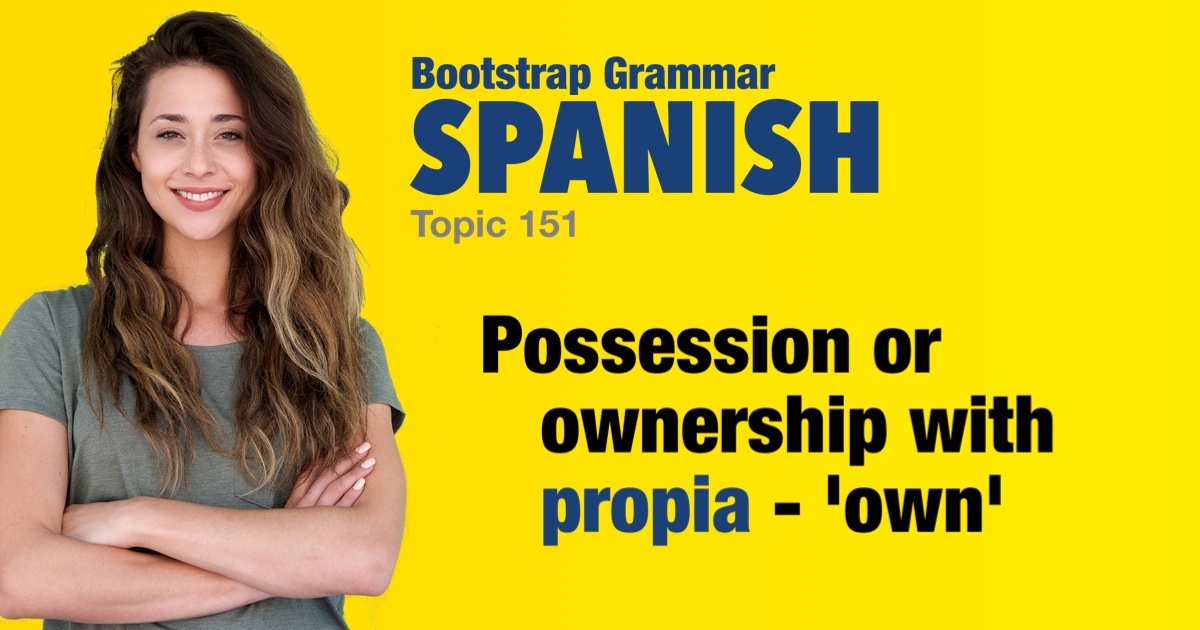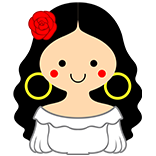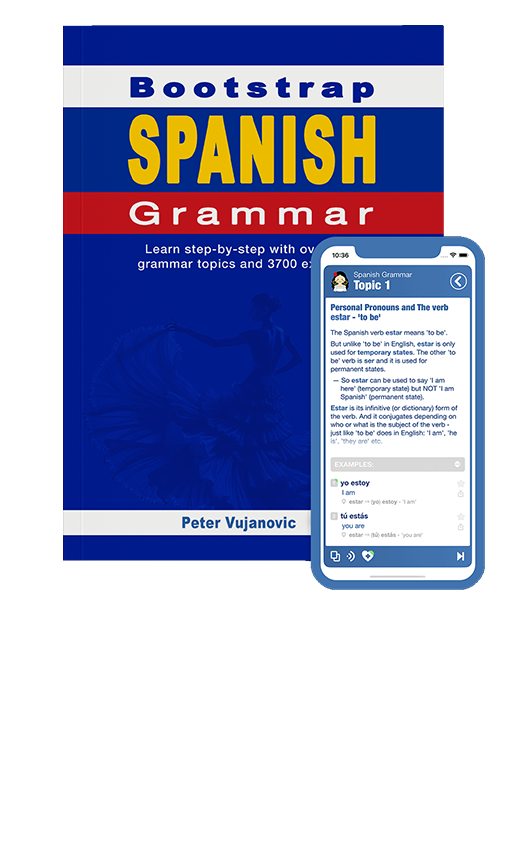Spanish grammar - Possession or ownership with propia - 'own' |
|||
|
|||
The word propia is an adjective that translates to 'own' in English. It is used to indicate possession or ownership. Or something char-acteristic or particular to a person or thing. Like all adjectives, it should agree in gender and number with the noun which it modifies. • propio is masculine singular. • propia is feminine singular. • propios is masculine plural. • propias is feminine plural. |
| Examples: | |
|
Es mi propia decisión.
It is my own decision.
|
|
|
Marta tiene su propio coche.
Marta has her own car. |
|
|
Quiero una habitación propia.
(I) want my own room. |
|
|
Cada estudiante tiene su propio libro.
Each student has his own book. |
|
|
Tenemos nuestras propias ideas.
(We) have our own ideas. |
|
|
El perro duerme en su propia cama.
The dog sleeps in its own bed. |
|
|
¿Tienes tu propio espacio en la oficina?
Do you (familiar) have your own space in the office? |
|
|
Prefiero usar mi propio bolígrafo.
(I) prefer to use my own pen. |
|
|
Ellos construyeron su propia casa.
They built their own house. |
|
|
¿Es este tu propio negocio?
Is this your (familiar) own business?
|
|
|
Cada uno tiene sus propios problemas.
Each one has their own problems. |
|
|
La profesora tiene su propio método.
The teacher has her own method.
|
|
|
María sigue su propio camino.
María follows her own path. |
|
|
Quiero escribir mi propio libro.
(I) want to write my own book. |
|
|
Juan tiene su propia oficina.
Juan has his own office. |
|
 |
|



